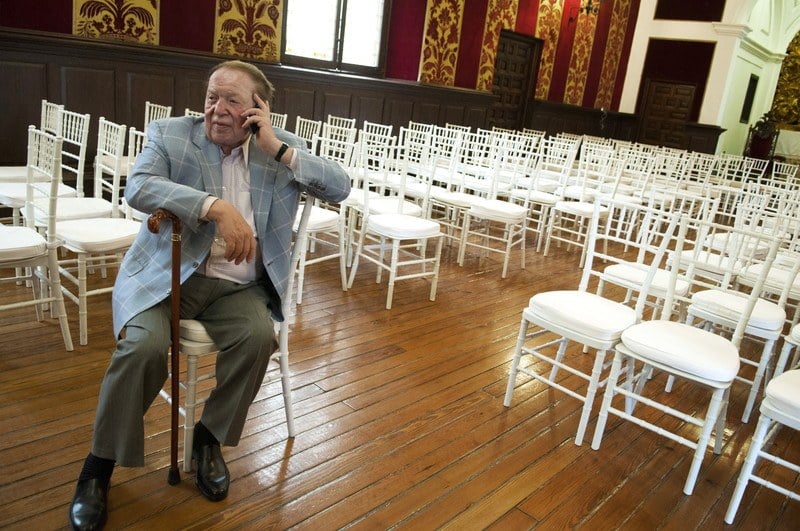Sheldon Adelson Shows Japan He’s Serious About Las Vegas Sands IR Bid with Personal Visit
Posted on: September 5, 2017, 09:39h.
Last updated on: September 5, 2017, 09:43h.
Las Vegas Sands Chairman Sheldon Adelson was in Tokyo and Osaka last week to get the inside scoop on Japan’s forthcoming integrated casino resort industry. The billionaire also offered up his company’s expertise on the meetings, incentives, conferences, and events (MICE) industry, telling government officials that Sands was there to help in any way possible.

Japan’s National Diet continues to work on its casino legislation. Two integrated resorts (IR) are expected to be authorized when the bill is revealed in December.
A special committee advising the country’s legislative arm recently embarked on a cross-country tour to meet with the public and listen to their concerns. The first two cities visited were, not surprisingly, Tokyo and Osaka.
Showing Face
Along with MGM Resorts, Adelson’s Sands is thought to be one of the two leading candidates to land one of the coveted casino resort licenses. And the 84-year-old making the more than 16-hour flight shows he’s as bullish as ever on development.
Adelson’s casino and hospitality empire really began when Sands was awarded one of the six casino licenses in China’s Macau, after the country decided to strip billionaire Stanley Ho’s gaming monopoly in 2002.
Sands Macau became the company’s second resort after The Venetian in Las Vegas. And the budding Chinese gambling hub spurred over a decade of fortunes for Adelson. With seemingly limitless amounts of money coming through Macau, Sands led the development of the Cotai Strip, opening The Venetian Macau, Plaza Macau, Sands Cotai, and last fall, The Parisian.
The revenue bounty also fueled the company’s domestic growth. Since opening up its first casino floor in Macau 13 years ago, Sands has built The Palazzo in Las Vegas and Sands Bethlehem in Pennsylvania. Its strong presence in China also made Sands favorable in Singapore, where it opened the $8 billion Marina Bay Sands in 2010, the planet’s most expensive standalone casino property ever built.
Japan Wants Sands
The Diet is thought to be basing its casino regulations off Singapore’s industry. Japan is expected to mimic how casinos are regulated and taxed there, and copy the initial two resort authorizations.
Japan’s controlling party is in favor of liberalizing gambling in an effort to drive tourism to the country and provide an economic boost. Marina Bay Sands has done just that in Singapore, and the resort doesn’t rely solely on gambling.
While Japan is ready to tap into gambling, politicians want to make sure the expansion doesn’t place what it perceives to be societal harms on its residents. An entrance fee for citizens is expected to be as high as $100 per visit, a notion thought to prevent impecunious patrons from gambling with money they don’t have and/or can’t afford to lose.
When Las Vegas Sands was developing Marina Bay, it included 1.3 million square feet of MICE space. Resorts World Sentosa, Singapore’s other integrated resort, focused more on “family” operations and dedicated just 100,000 square feet to convention space, a move that Las Vegas learned the hard way in the 1990s was not a moneymaker for a gambling arena.
Sands’ proven track record in Las Vegas, Macau, and Singapore presumably makes the company Japan’s top pick, which could become the crowning achievement of Adelson’s illustrious gaming career.
No comments yet